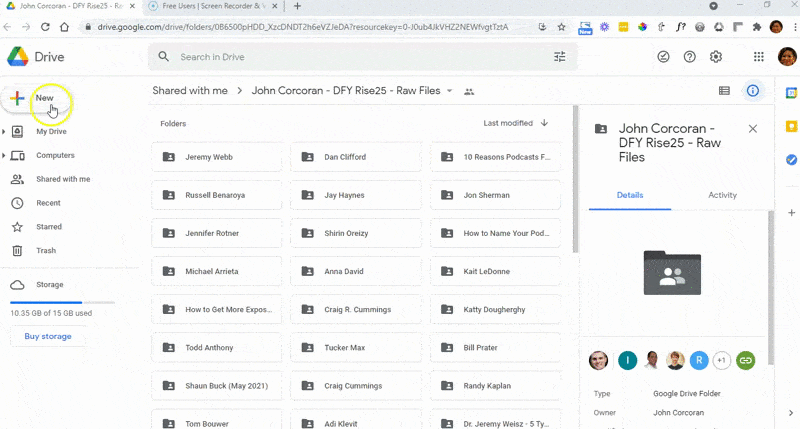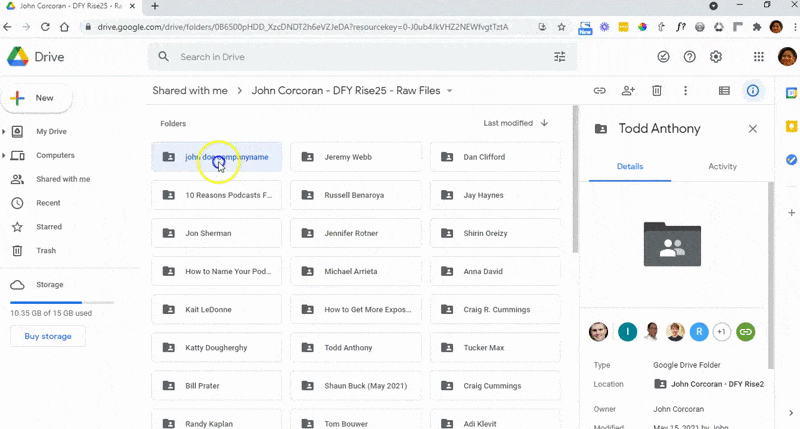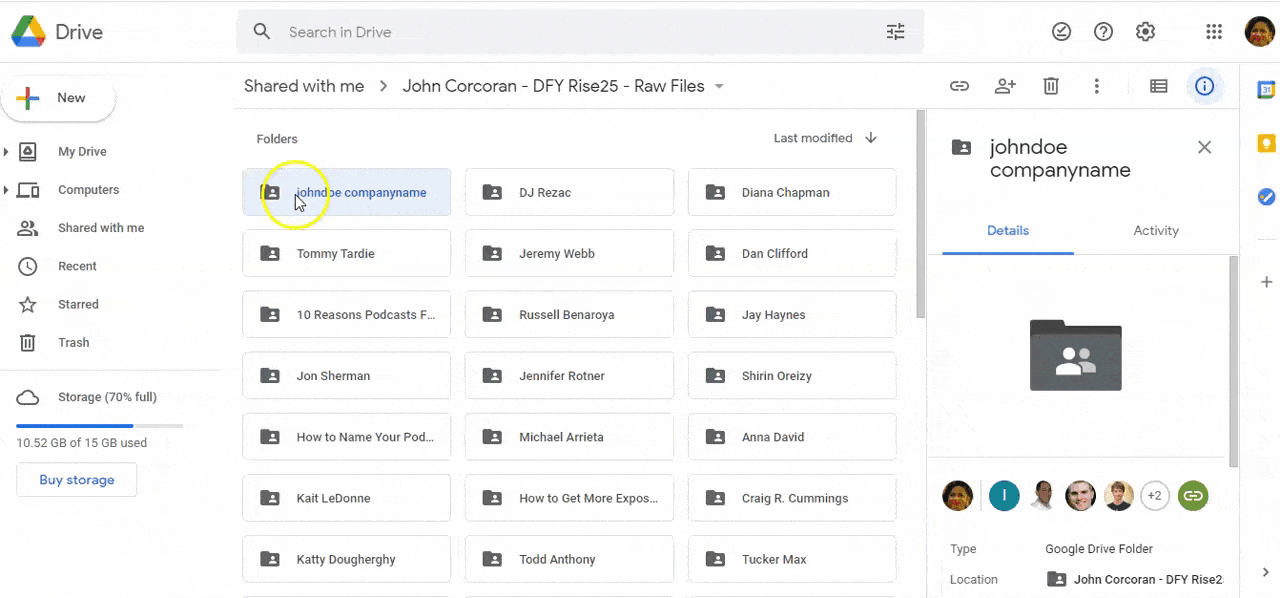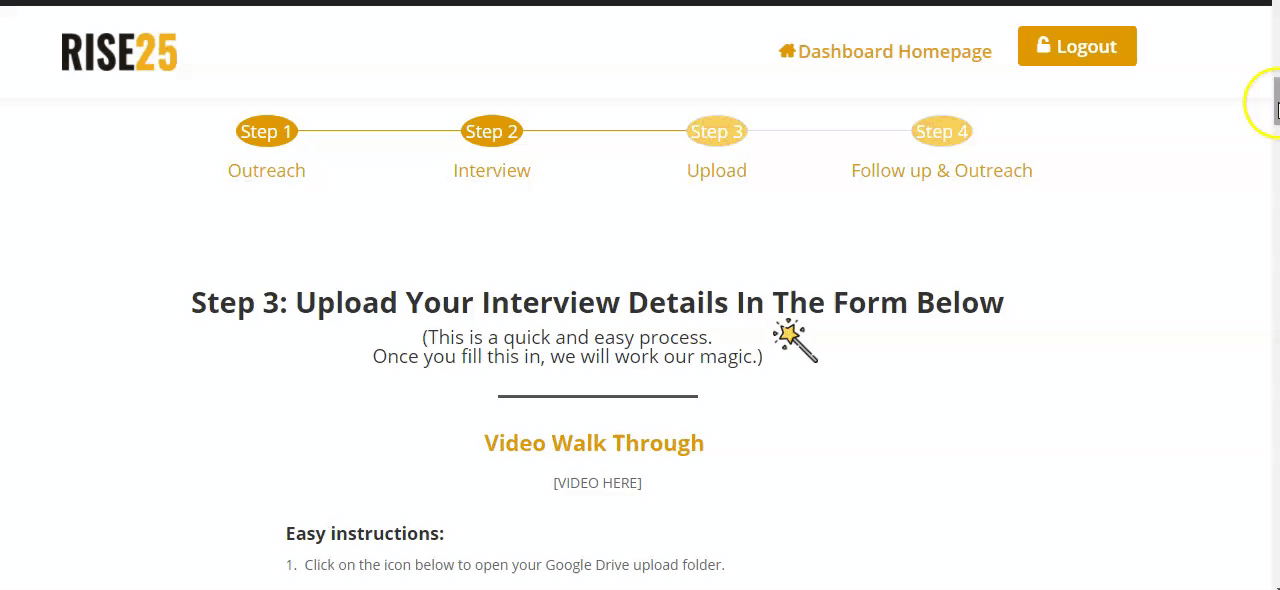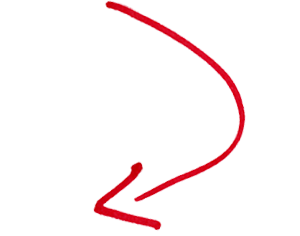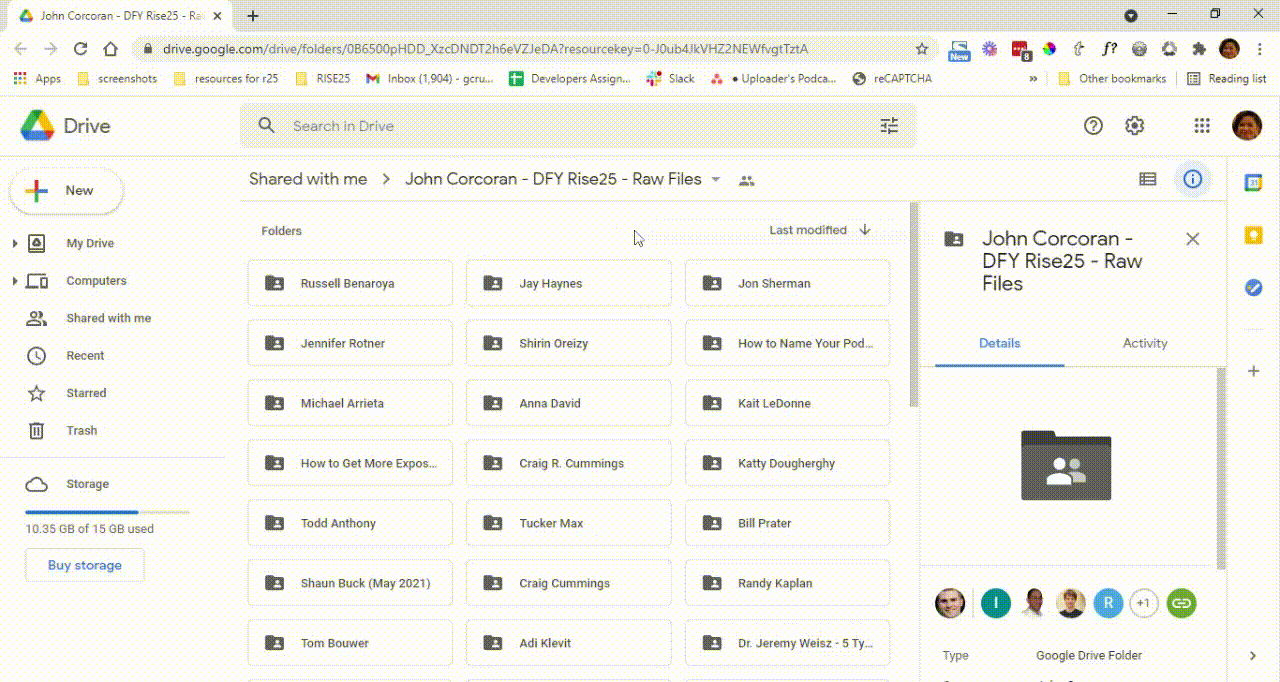How To Conduct a Pre-Interview In a Separate Session, Prior to Scheduling an Interview with a Prospective Guest
What if your guest asks for questions ahead of time?
We generally do not recommend sending any questions to guests beforehand because we want to keep the interview from potentially sounding too scripted or having the guest overly prepared.
From our experience, the guests who receive questions get thrown off when the interview does not follow the exact order of the questions and spend time looking at what they wrote out instead of having a conversation.
Podcasts are meant to be conversational so giving too much information can hinder the interview process.
You will plan out the entire episode with the guest during the 10-minute pre-interview process right before you record the interview.
Therefore, follow the pre-interview script we laid out on your Interview Template as we have tested this across tens of thousands of interviews.
You will assure the guest that your goal is to always put the guest in the best light possible and will make sure that the questions being asked are those that they can answer in their sleep.
Here is an email template you can use if a guest asks for questions ahead of time:
—————–
Hi [Name]
I am looking forward to the interview and no prep is needed.
We will prepare everything on the call together before we start recording so everything is fresh in our minds.
I don’t have set questions and I keep the interview very conversational.
In general, I will ask about your company and your journey so feel free to think of some of your favorite stories and a success story or two to share to highlight what you and your company does.
I want this to be a huge win for you so we will create something great.
[HOST FIRST NAME]
—————–
1. During the pre-interview, always start with this question: “I want to respect your time and keep an eye on the clock. What time do you need to be done?”
To determine if they have a hard stop time, you can also ask: “Is there somewhere you have to be at [insert finishing time]?”
2. Next, ask them a couple of questions to learn about what is most important to them. Use this script: “I want to make sure that we share and talk about what is top of mind for you. What do you want to make sure that we mention or discuss?”
You can also ask: “What is a great case study or a favorite story we can talk about? It could be a new project, book, or specific story you want to tell.” Or, you could ask: “What would make this interview a big win for you?”
This will help you create an outline for the interview and ensure that the guest is happy with the result.
3. To ease any nerves and help the guest feel more confident going into the interview, you should also quickly explain the format of the episode during your pre-interview conversation. Here’s our tried-and-true script for that:
“I will open with a brief introduction of the show, then I’m going to read a short sponsor message. Next, I’ll read a rockstar intro of you and launch into our first question.”
It can also be helpful to tell them what your first question is going to be.
4. The next step is to verify your introduction of the guest. First and foremost, ask your guest: “Am I pronouncing your name right?”
Then, you can say: “I’m going to read you my introduction so you can let me know if I should add or subtract anything.”
This shows respect and highlights the fact that you did your research on the guest beforehand.
5. We love setting up a “give loop” during our interviews. To do this, ask your guest: “Who is an important client, partner, or champion we should mention during the interview?”
You can also ask if they have a good story that features this person so it can be included in the interview.
6. If you have an especially nervous guest, here’s one final question to ease their nerves and get them excited for the interview: “What is a fun fact about yourself that many people don’t know?”
7. Last, but not least, say: “Now I will hit ‘record’ and test the mic.” Once you hit the “record” button and see the blinking light, say: “Testing 1, 2. Talk on your end.”
Although it may seem simple, saying this out loud will ensure that you never make the biggest podcasting mistake: forgetting to hit “record” before starting your interview.
It will also give you the chance to check the sound quality of both your microphone and your guest’s microphone before you begin the conversation.


